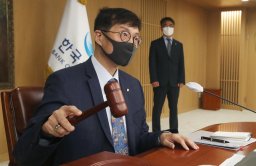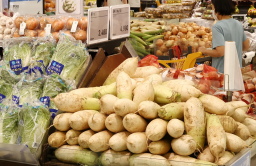-
KOSPI 2577.27 -2.21 -0.09%
-
KOSDAQ 722.52 -7.07 -0.97%
-
KOSPI200 341.49 +0.02 +0.01%
-
USD/KRW 1396 -2.00 0.14%
BOK chief: S.Korea won't keep pace with Fed’s interest rate hikes
Central bank
BOK chief: S.Korea won't keep pace with Fed’s interest rate hikes
Governor Rhee Chang-yong says the central bank will not stop rate hikes before the Fed does; inflation has not peaked
By
Aug 29, 2022 (Gmt+09:00)
3
Min read
News+
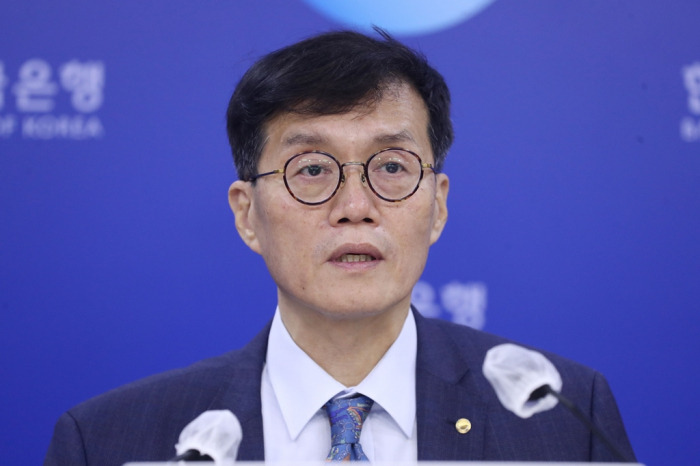
JACKSON HOLE, Wyo. -- The Bank of Korea plans to raise interest rates until inflation falls to its target level but won't keep pace with the US Federal Reserve’s monetary policy tightening, the South Korean central bank’s chief said.
Bank of Korea Governor Rhee Chang-yong told The Korea Economic Daily on Saturday that the central bank is unlikely to stop increasing borrowing costs before the Fed as the Asian country is a small open economy.
“We will continue interest rate hikes as long as inflation falls to around our target of 2%,” Rhee said in an interview on the sidelines of an annual global central bankers' conference in Jackson Hole, Wyoming. “We will set price controls as the top monetary policy priority for the time being.”
Rhee said, however, that the BOK will not raise its policy interest rates as quickly as the Fed, given the downside risks in Asia’s fourth-largest economy. Fed Chairman Jerome Powell on Aug. 25 said the US central bank will increase rates as high as needed to restrict growth and would keep them there “for some time” to bring down inflation.
“The point of Powell’s speech is to hike the benchmark interest rates by 50 basis points or 75 bps with a focus on inflation for the time being. That is not much different from expectations, so I don’t intend to change South Korea’s monetary policy,” Rhee said.
“We plan to maintain the current pace of the rate hikes as long as (the upcoming) economic data is in line with our expectations,” he said. “We must consider not only prices but also growth when we determine interest rates.”
The BOK last week raised its base interest rate by 25 bps to 2.50% as expected, resuming usual-size increases after delivering a 50-bp hike in July for the first time ever.
INFLATION HAS NOT PEAKED
The central bank ramped up its inflation forecast for this year to 5.2%, the highest since 1998 when consumer prices surged 7.5%, from the previous year's 4.5%. Inflation is likely to ease to 3.7% in 2023, according to the BOK.
“We forecast August inflation to slow from the 6.3% increase in July, but it is difficult to say inflation has peaked,” he stressed.
Rhee said the BOK will not stop rate hikes before the Fed ceases its tightening even as the South Korean central bank slashed its growth forecast for this year to 2.6% from the prior 2.7%.
“The BOK’s monetary policy is independent from the government but not free from the Fed,” Rhee said. “South Korea does not have a major currency and is a small open economy. So, we should always keep the Fed's policy in mind.”
“The BOK started raising rates before the Fed, but it is difficult to stop rate hikes before the Fed.”
DEPRECIATING WON ADDS TO INFLATIONARY PRESSURE
Rhee expressed concerns over the recent weakness in the South Korean won as it ramped up inflationary pressure. He played down the positive impact of the won’s depreciation on exports.
“A weaker won ramps up import prices. That lifted costs for crude oil and other commodities, affecting the overall inflation,” he said.
“Exports do not rise due to a softer won as much as before as South Korean companies have already expanded their overseas businesses.”
The won on Monday weakened as much as 1.1% to reach 1,350.8 against the dollar, its weakest point since April 29, 2009. The South Korean unit has been the worst performer among emerging Asian currencies with a near 12% loss against the greenback so far this year.
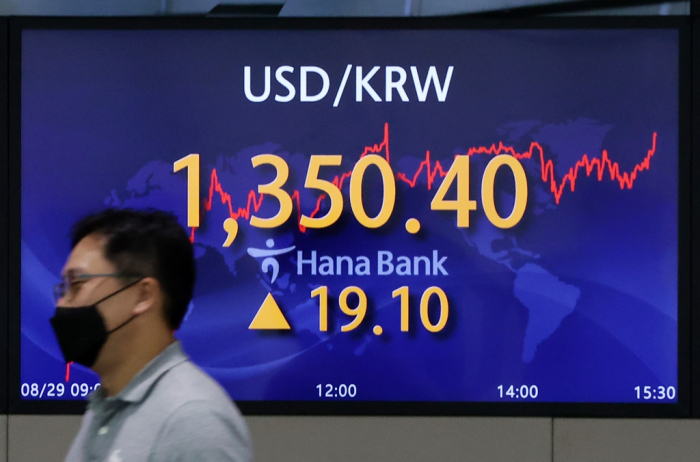
But Rhee said the won’s recent depreciation is not a sign of another currency crisis.
“The current situation is totally different from the 1997 crisis,” said Rhee, referring to the 1997-98 Asian financial crisis when massive capital outflows slammed the won.
“The won has been moving in line with other major currencies despite a super strong dollar. It has performed better than the euro and the yen,” he said.
The Japanese currency has lost over 16% versus the dollar so far this year, while the single currency of the European Union has depreciated more than 12%, according to the BOK.
Write to In-Seol Jeong and Mi-Hyun Jo at surisuri@hankyung.com
Jongwoo Cheon edited this article.
More To Read
-
Aug 25, 2022 (Gmt+09:00)
-
Aug 02, 2022 (Gmt+09:00)
-
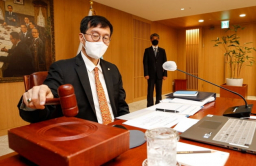 Central bankBOK delivers first-ever 50-bp hike to curb inflation
Central bankBOK delivers first-ever 50-bp hike to curb inflationJul 13, 2022 (Gmt+09:00)


